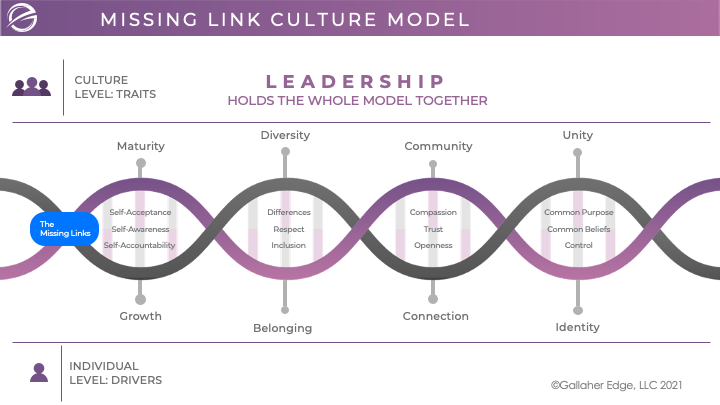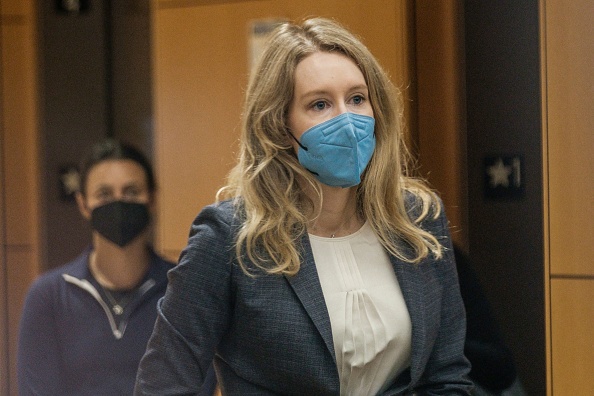As the court interviews citizens, looking to find impartial jurors in the case against Elizabeth Holmes, I wonder who they’ll select.
The judgmental older woman, shaking her head in disapproval, thinking, “How could she do that?”
The confused young man, wondering, “How could she keep the company operating for so long when the product didn’t work?”
The middle-aged businessman who thinks to himself, “I would never do that with my business.”
You’ll find lots of opinions, but one of the most common things you’ll find is the desire to blame.
We all want to find somebody to blame. It is seductive. Our brains exist to help us stay alive and avoid pain, and blame reduces that pain. Temporarily.
Blame is the most common defense mechanism that you see in organizations, and it’s something that we all do sometimes to ease our own pain and discomfort. Maybe you feel the pain of inadequacy when your house is dirty, so you blame your spouse. Or you feel the pain of incompetency as a leader when your team misses a deadline, so you blame your employees.
Ok, you’re thinking to yourself “Sure… but blaming Elizabeth Holmes for what happened with Theranos? I wasn’t one of the patients receiving misinformation, there’s no pain here!”
But what most people fail to realize is that it is painful to think, to realize, to accept, that what happened with Elizabeth Holmes and her leadership of Theranos could have happened to you. We want to believe that what happened there was all her fault, and “I’m not like that.”
It’s also painful to realize that there is a complex system with multiple factors that contributed to what happened with Elizabeth Holmes and Theranos, and that the answer is almost never as simple as we want to think it is.
Our brains love to predict. Predicting historically kept us safe. If my brain accurately predicted when severe weather was coming with enough time for me to seek shelter, I was safe. If I could predict what animals or neighboring tribes posed a threat to me and which did not, I was safe. Our brains like to predict so much, we see patterns that don’t really exist. And we’re more likely to do it when we’re feeling stressed. A more relaxed brain is less likely to see patterns that don’t exist.
So, when we realize that in the case of Theranos and Elizabeth Holmes, there is a complex system at work, it can be subconsciously painful to realize how hard it is to actually predict what might happen. So, to ease this subconscious pain, and stop ourselves from even being aware of it, we resort to blame.
We blame Elizabeth Holmes.
We blame Ramesh “Sunny” Balwani.
We blame the culture of Silicon Valley.
We blame the media.

And we do this because we believe it creates accountability. But what is accountability? True accountability is future focused. True accountability comes from within. Accountability has nothing to do with blame.
Accountability will happen when we take a look at what happened, and instead of engaging in “otherism” where we immediately classify ourselves as somebody who “would never,” we lean in and say, “In what circumstances could I make the same bad choices?”
"When you blame others, you give up your power to change." – Robert Anthony Share on XWhen we blame, we slow down our ability to evolve. And that’s what we want, and need, to do as a species. As a human race, our role is to continue to evolve so we can not just survive but thrive.
Culture is complex. The culture at Theranos, the culture in Silicon Valley, the culture in American media – it is complex.
Which makes it hard to predict, and it’s an emergent property, which makes it hard to control. But there are levers that everyone can control, and these are the missing links to evolve any culture.
The same missing links that we see in the case of Elizabeth Holmes and Theranos, we saw in the case of the NASA Space Shuttle Columbia disaster.
On the surface, most people wouldn’t connect the two. People want to oversimplify and blame something simple that they understand, which gives them the illusion that they are immune.
“Space Shuttle Challenger exploded because of group think.”
One headline following the Space Shuttle Columbia claimed, “It all came down to a single conversation.”
As professionals who study culture and work with organizations on their culture every single day, we know how easy it is to misunderstand and oversimplify. That’s why we literally wrote a book on it. The Missing Links: Launching a High Performing Company Culture comes out September 7th, 2021 and is available on Barnes & Noble and Amazon.
Check back soon for part 2 of this blog where we walk through the missteps that plagued both Theranos and NASA to make sure you can learn from the mistakes of others.

Ready to take your leadership to the next level? Get your FREE copy of my eBook, Level Up: 3 Steps to Be a Better Leader. Click here to download!

